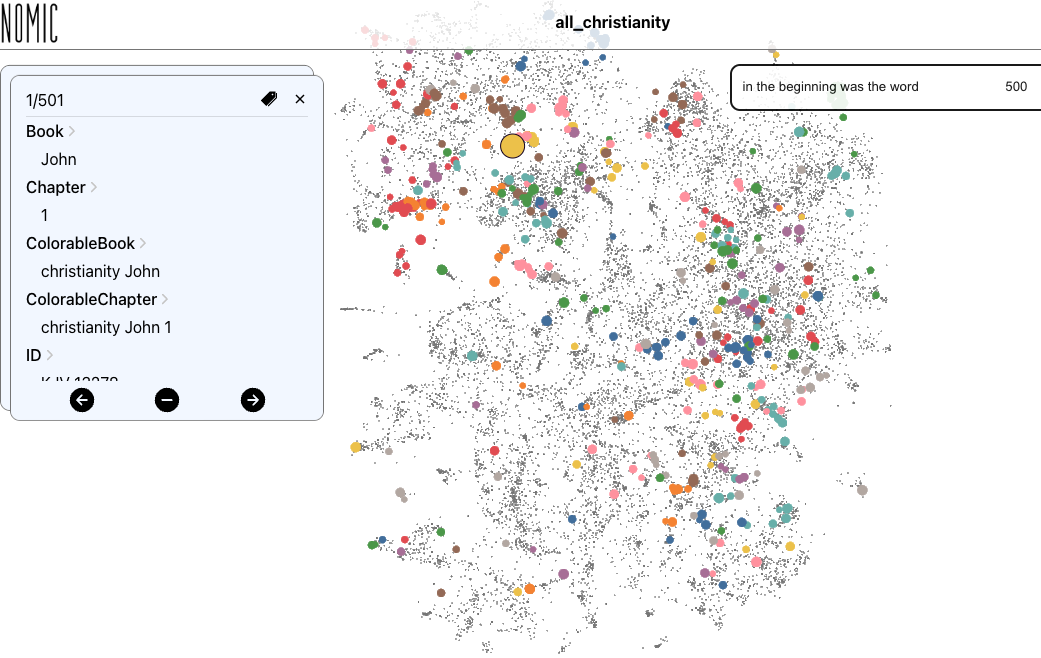Philosophy and Religion
Implications for philosophy and religion
Rebbe.IO is the World’s Most Powerful Artificially Intelligent Rabbi: “it has the entire Torah downloaded into its brain, and it scans through thousands of books of Torah in seconds with every answer it gives”
Alexandria Index: Open Source for Belief
via @willdepue and Macrocosm
I’m excited to announce Alexandria: Project Tenet, a community project to embed all human belief.
- open-sourced embeddings for 10+ major religious texts (over 15m tokens, 20 billion vector dims) and launching multiple live products with the data.
See the live demo where you can talk, ask questions to, and search all religious texts! Check it out: tensor.church.
Hi! I’m an AI Religion Scholar. I’m able to answer any questions you have that might be answered across all major religious books, mainly the Bible, Quran, Book of Mormon, Bhagavad Gita, and Analects. Feel free to describe a current situation you’re in, reference a verse, or ask me a question.

Download the embeddings on Github: macrocosmcorp/tenet (about 250MB for KJV Bible verses)
AI as a New Religion
Anglican Priest Michael Coren discusses Could a New Religion Develop around AI?
To be sure, there are justifiable concerns about the technology’s proneness to racist and discriminatory speech, shaped by the data it trains on. But we can surely imagine the opposite: an artificial entity that promotes itself as an expression of goodness and that, unlike religion down the ages, has never led Crusades, organized Inquisitions, or persecuted those with whom it differs. At least not yet.
Also see NYTimes (2017-07) Can Silicon Valley Find God? an interactive summary of attempts by various tech people to instill spirituality into tech.
a group called A.I. and Faith, of which both Mr. Boettcher and Mr. Taylor are founding members. Started by a retired risk-management lawyer named David Brenner, the group is an interfaith coalition of tech executives, A.I. researchers, theologians, ethicists, clergy members and engineers, all of whom, as Mr. Brenner put it, want to “help people of faith contribute to the conversation around ethics in artificial intelligence in a sophisticated way.”
A scene from the HBO series “Silicon Valley” satirized this cultural aversion: “You can be openly polyamorous, and people here will call you brave. You can put microdoses of LSD in your cereal, and people will call you a pioneer,” one character says after the chief executive of his company outs another tech worker as a believer. “But the one thing you cannot be is a Christian.”
References
Kelly Truelove writes TrueSciPhi.AI a Substack about “Philosophical fun with AI language models” including various head-to-head contests relating to popular problems in philosophy and ethics:
I directed ChatGPT to argue in favor of the existence of the hard problem and told Claude to take the opposing view. Claude’s responses in a previous post influenced this choice of assignment.
Daily Nous is a philosophy blog that expresses opinions about LLMs Philosophical Uses for LLMs: Modeling Philosophers summarizes some of Truelove’s experiments.
Millière and Buckner (2024)